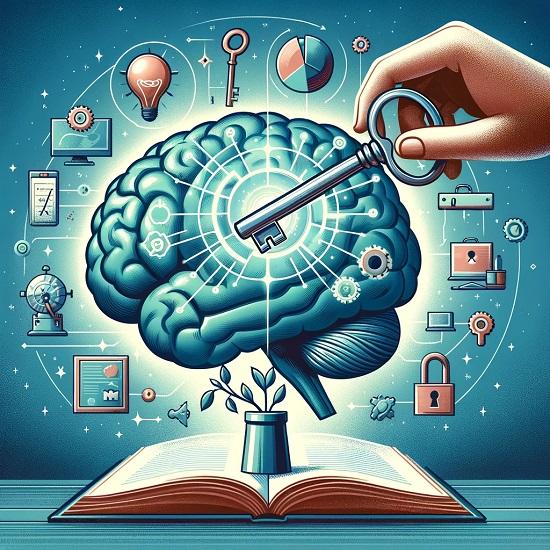Introduction
Adult learning principles are essential for the successful training and development of adults in the workforce. As the world evolves and the workforce becomes increasingly diverse, the need for adult education and training has become more prominent. Unlike teaching children, educating adults requires a different approach, and understanding the principles of adult learning is crucial for creating effective learning experiences. In this comprehensive article, we will delve into the intricacies of adult learning principles, exploring the key concepts, theories, and practical applications that can unlock the secrets of effective adult learning.
Understanding Adult Learning Principles
Adult learning principles, rooted in the concept of andragogy, focus on the unique needs, motivations, and characteristics of adult learners. Malcolm Knowles, an influential figure in adult education, introduced the concept of andragogy in the 1980s, highlighting the distinct differences between pedagogy (the practice of teaching children) and andragogy (the practice of teaching adults). The seven key principles of adult learning include self-direction, transformation, experience, mentorship, mental orientation, motivation, and readiness to learn.
1. Self-Direction:
Adult learners are autonomous and prefer to have control over their learning process. They are motivated by internal factors and have a strong desire to determine their own learning goals and objectives. Practical application: When designing adult learning programs, providing opportunities for self-directed learning, such as setting individualized learning goals and offering resources for independent study, can significantly enhance engagement and knowledge retention.
2. Transformation:
Adult learning often involves a transformational process, where new information or experiences challenge and change the learner’s perspectives and beliefs. This principle emphasizes the importance of meaningful, impactful learning experiences that have the potential to shift the learner’s worldview. Practical application: Incorporating thought-provoking discussions, real-world case studies, and reflective activities in adult learning programs can facilitate transformational learning experiences.
3. Experience:
Adult learners bring a wealth of life experiences to the learning environment. They prefer to connect new knowledge to their existing experiences, making learning more relevant and meaningful. Practical application: Integrating real-life scenarios, simulations, and case studies into training programs can leverage the experiential focus of adult learning, allowing learners to apply new knowledge directly to their daily challenges and responsibilities.
4. Mentorship:
Adult learners benefit from mentorship and guidance from experienced individuals in their field. Mentors can provide valuable insights, advice, and support, enhancing the learning process and professional development. Practical application: Establishing mentorship programs or peer-to-peer learning initiatives within organizations can create a supportive and collaborative learning environment for adult learners.
5. Mental Orientation:
Adults approach learning with a problem-centered orientation, seeking practical solutions and immediate application of knowledge. They are motivated by the relevance and applicability of the learning content to their current or future professional roles. Practical application: Designing learning activities and assessments that focus on solving real-world challenges and addressing workplace issues can align with the mental orientation of adult learners, fostering a more impactful learning experience.
6. Motivation:
Adult learners are motivated by a variety of factors, including career advancement, personal growth, and job satisfaction. Understanding and tapping into these intrinsic motivations can drive engagement and commitment to the learning process. Practical application: Tailoring learning objectives and content to align with the career goals and aspirations of adult learners can enhance their motivation and investment in the learning journey.
7. Readiness to Learn:
Adults are more receptive to learning when they perceive a direct relevance and readiness for the knowledge or skills being offered. They prefer learning that addresses their immediate needs and challenges. Practical application: Conducting pre-assessments and skill gap analyses to identify the specific learning needs of adult learners can ensure that training programs are tailored to their readiness and requirements.
Implications for Training and Development
Understanding adult learning principles has significant implications for the design, delivery, and evaluation of training and development programs within organizations. By incorporating these principles into the learning environment, educators and L&D professionals can create meaningful, practical, and applicable learning experiences for adult learners. The application of adult learning principles can shape more effective training programs and lead to better training outcomes, ultimately contributing to the professional growth and success of adult learners in the workforce.
Conclusion
In conclusion, unlocking the secrets of effective adult learning principles is crucial for meeting the diverse learning needs of adults in the workforce. By embracing the principles of andragogy and understanding the unique characteristics of adult learners, organizations can design and deliver training programs that resonate with the motivations, experiences, and readiness of adult learners. The seven key principles of adult learning, encompassing self-direction, transformation, experience, mentorship, mental orientation, motivation, and readiness to learn, provide a comprehensive framework for creating impactful and engaging learning experiences for adults. Embracing adult learning principles is not only essential for individual professional development but also for organizational success in building a well-informed and skilled workforce.










